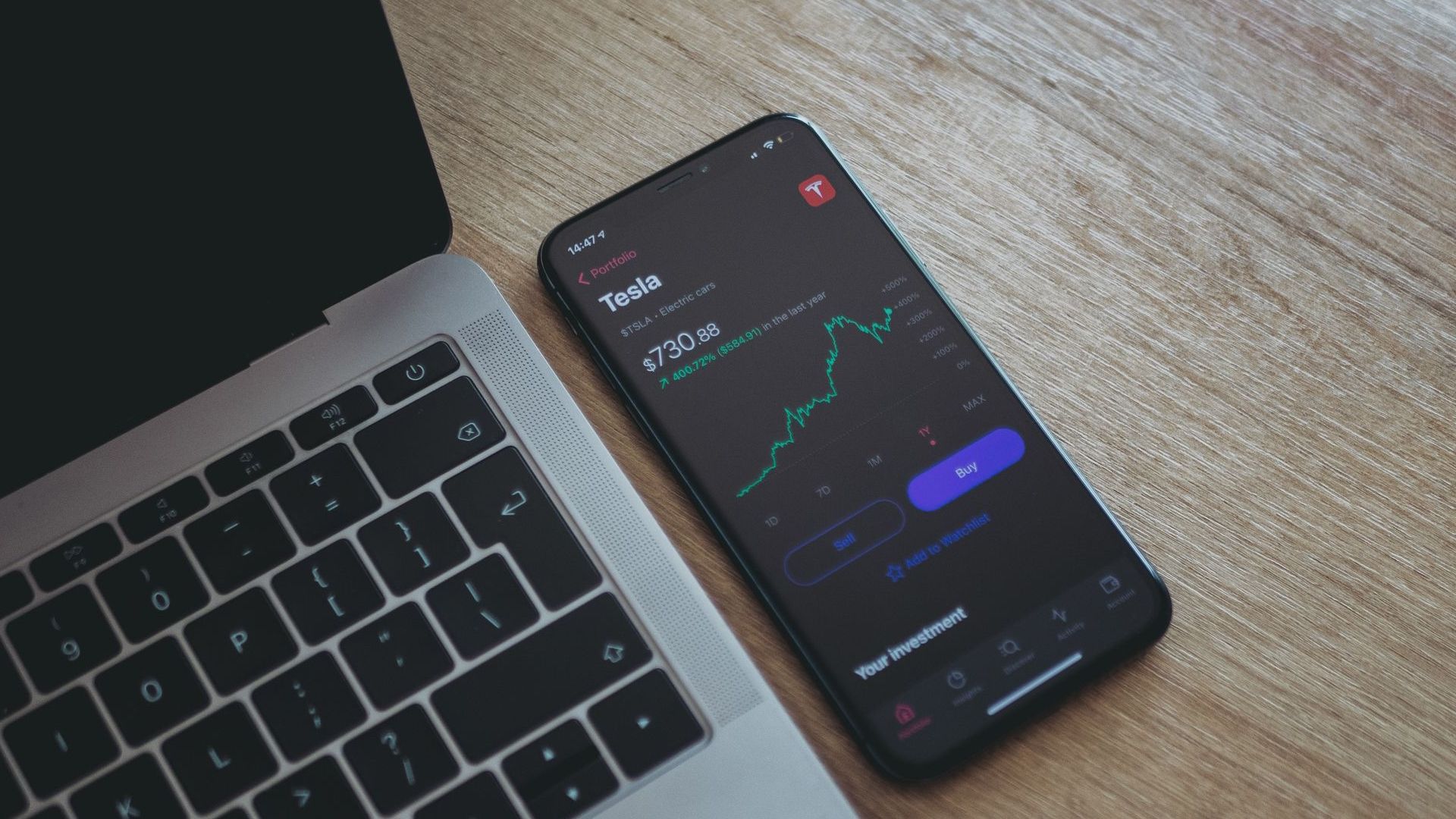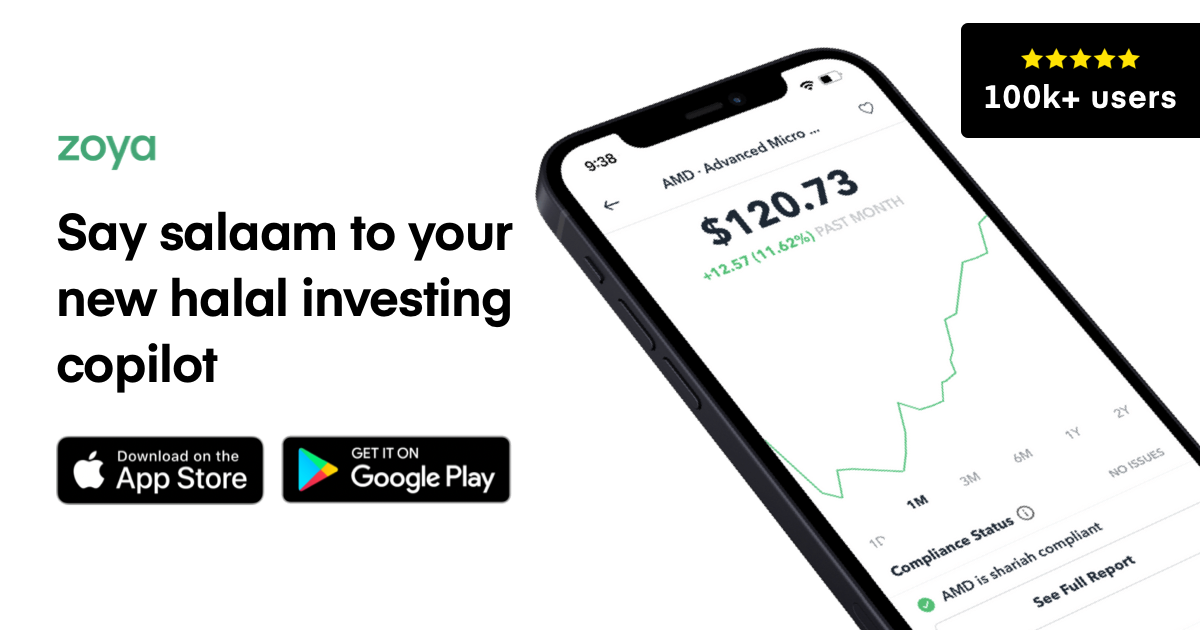What Makes an Investment Halal?

Retail investing has surged over the last two years, primarily due to the pandemic, as people found they had more cash in their wallets and more time on their hands.
Within 5 minutes, an amateur investor can now purchase stocks in the largest companies in the world. This was supported mainly by the growing popularity of easy-to-use commission-free investment apps like Robinhood and Freetrade, with 23.5 million users worldwide collectively (Statista, 2021 and Linktorial, 2021). Moreover, between October to December 2020, 20% of Americans invested in stocks or mutual funds, a 25% increase from the quarter ending June 2020 (The Conference Board, February 9, 2021).
Millennials and Gen-Z alike are more socially and ethically motivated when making their investment decisions than any other generation, with 60% of respondents making more “environmentally friendly or ethical purchases” since the pandemic's beginning (Accenture, 2020). This extends to their formal financial habits, as 71% of Millennials surveyed were more inclined to choose a bank with a positive social and environmental impact (Deloitte, 2020). And while the global Muslim population continues to drive the growth of the Islamic finance industry, the appeal for Islamic financial products increases as 70% of Muslims would like to invest without having to meet anyone, i.e: investing via an app (Mambu, 2021)
Fintech promises a financial revolution for the average person, and investing has undoubtedly amplified the democratization of finance. While new investors have embraced the ease at which they can invest, how do Muslims fit into the emerging financial landscape?
What is a halal investment?
By definition, halal means permissible or lawful under Shariah (Islamic) law, and investment is an asset bought with the view that it will increase in value in the future, thus generating an income. Therefore, for an investment to be deemed halal, it must comply with Shariah principles, set out by the Qur’an and Sunnah. It is often linked with socially responsible behaviors, as halal investing considers the ramifications on society, communities, and families too.
So what are the core Islamic principles that would make an investment halal?
As with any basic Islamic financial instrument, an investment cannot generate riba (interest). Riba is mentioned repeatedly in the Qur’an, and it is explicitly haram due to its exploitative nature. In essence, riba allows one party to become richer at the expense of another, thus increasing the wealth gap and creating a more economically unequal society.
Further, investments cannot be made into industries that explicitly go against Islamic teachings. These include alcohol, gambling, and pornography to name a few. This is because such industries promote further inequality and disparities from gender to societal, harming communities, families, and individuals alike.
It’s important to recognize we live in an imperfect world, and not all information will be apparent or readily available. As such, as consumers we’ll never be 100% sure of all activities that go on at a company - how could we? That’s why there are a few key technical points to tick off when considering your next halal investment.
Getting technically halal with your money
When it comes to the technical specifics of halal investing, it’s important the total amount of income from interest and non-compliant activities doesn’t exceed 5% of the total sales of the company. This is generally known as the 5% rule. You can take a look at the financial statements and positioning of the company. Companies release their financial accounts on a yearly basis (you can find these online). By doing some research on their sources of income and where their profits are derived from, you can gain a more informed understanding of whether the company is a viable halal investment.
Further, if a company is operating with a significant amount of debt - it should be avoided. In real terms, it’s widely accepted by many scholars that a company should not exceed interest-bearing debts of over 33% of the company’s value.
Some more cautious halal investors may avoid companies with any interest-bearing debts altogether, but this can prove to be a difficult opportunity to come by. Another consideration point is the ethics behind a company, and the social good it promotes. For example, a company that uses mass plastic packaging may have a large carbon footprint, so whilst it may technically be a halal investment, it may not sit well with one’s personal beliefs.
Why should you buy into halal investing?
Beyond it being a lifestyle choice, investing in a halal manner allows you to get more intentional with your finances. As an investor, you’re able to carefully consider the types of companies you’re able to invest in, and why you’re investing in them - the ethics and ethos of a company as well as its benefit to society. It enables you to build a portfolio that’s true to your values, as well as potentially financially beneficial (provided you make the right investment!)
Naturally living in an on-demand culture can make things increasingly strenuous when there are so many things continuously asked of us. That’s why using Zoya eliminates the amount of time you need to spend tracking and screening stocks. It makes halal investing easy - helping you to build and monitor your Shariah compliant investment portfolio with confidence, clarity, and control.
Now that I know what makes an investment halal, where do I begin?
Investing has become a viable financial option for many over the last two years, thanks to the appetite of retail investors and the ease of investing options via fintechs across the globe. Increasingly, there are more halal investment options available on the market, enabling you to make promising financial decisions, in line with your values.
As Muslims converge towards ethical, Shariah compliant financial options, investment habits that reflect an Islamic ethos become increasingly important. The need for easy access to financial reports detailing Shariah compliance, as well as alternative investment opportunities, make Zoya an ideal choice for the socially responsible investor looking to stay true to their values whilst also maintaining a competitive investment portfolio.

Zoya: Halal Stocks, ETFs, Mutual Funds
Zoya makes halal investing easy by helping you build and monitor a shariah compliant investment portfolio with confidence and clarity.
